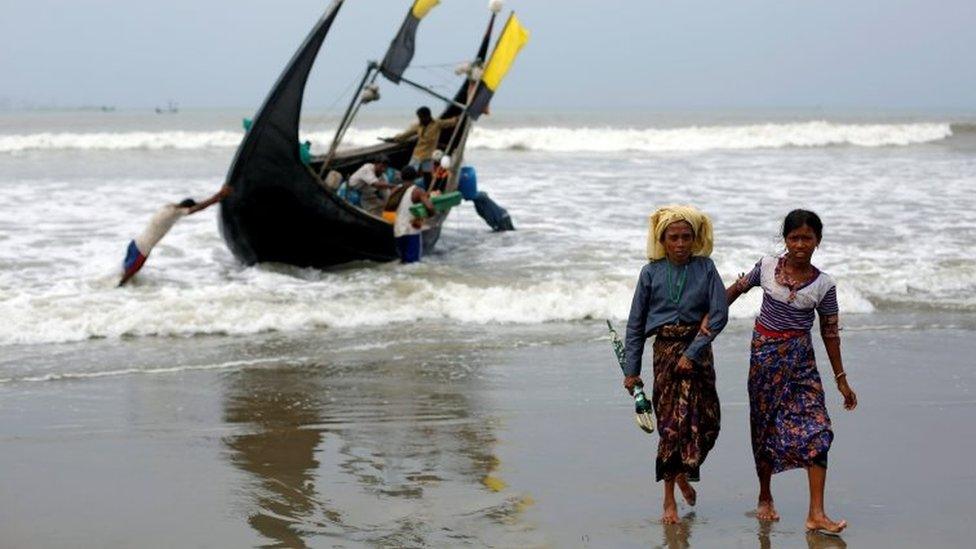Myanmar Mass: Pope issues warning on exacting revenge
- Published
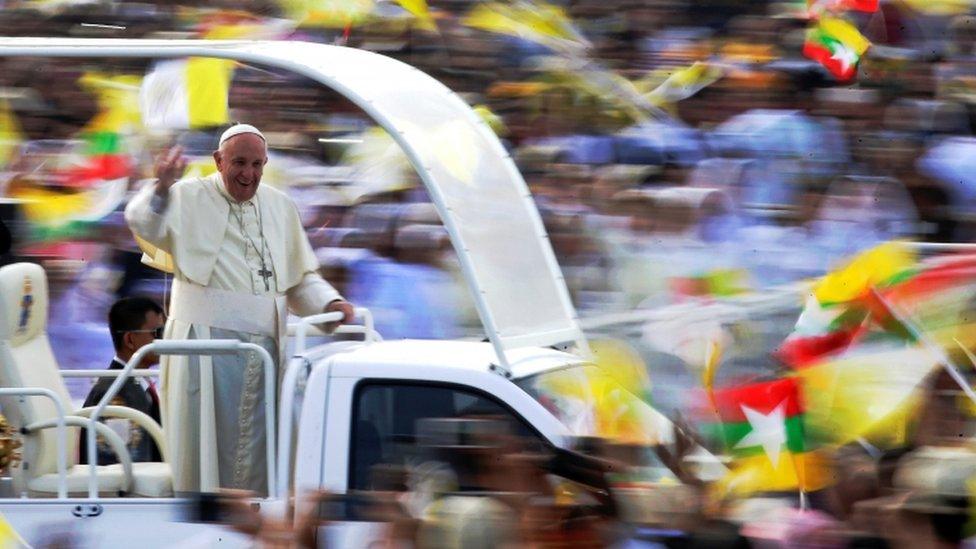
Pope Francis: "The way of revenge is not the way of Jesus"
Pope Francis has celebrated his first public Mass in Myanmar, staunchly defending ethnic rights in a nation facing accusations of ethnic cleansing.
Some 150,000 followers attended the Mass in the city of Yangon.
Francis referred to the "wounds of violence" from ethnic conflict but urged people to shun revenge, saying it was "not the way of Jesus".
He again avoided the term Rohingya, the Muslim community of whom 620,000 people have fled to Bangladesh since August.
The UN has described the crackdown on the community in the state of Rakhine as "textbook ethnic cleansing".
Myanmar's government rejects the term Rohingya, labelling the community "Bengalis". It says they migrated illegally from Bangladesh so should not be listed as one of the country's ethnic groups.
It also denies the accusations of ethnic cleansing and says the crackdown was to root out violent insurgents after deadly attacks on police posts by Rohingya militants.
Pope Francis had been warned by his Catholic representatives in the country not to use the sensitive term Rohingya for fear of alienating the Buddhist majority and causing difficulties for the nation's 600,000 Catholics.
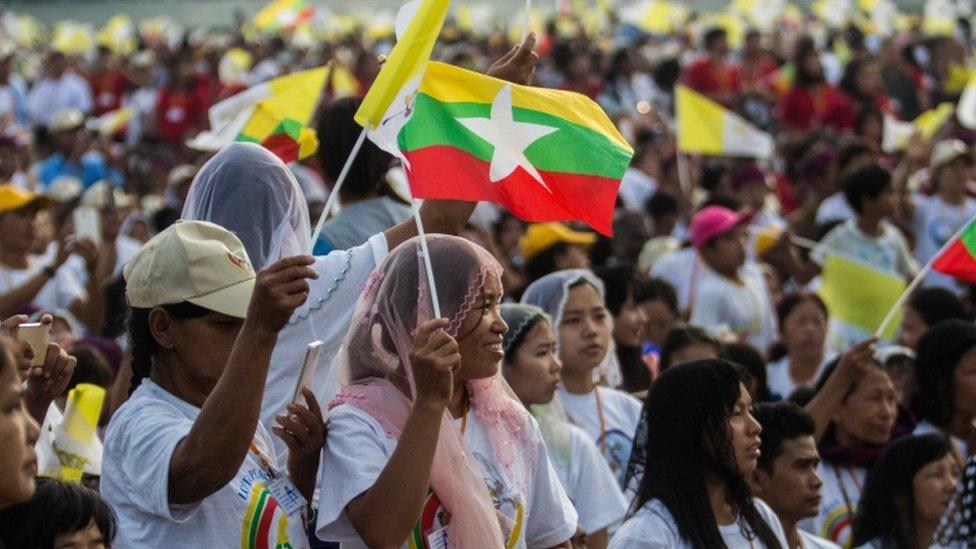
Many of the devotees had travelled long distances
In his homily on Wednesday, Francis referred to the ethnic discrimination and conflicts that Myanmar has seen for decades.
He said: "I know that many in Myanmar bear the wounds of violence, wounds both visible and invisible.
"We may think that healing can come from anger and revenge. Yet the way of revenge is not the way of Jesus."
About 90% of Myanmar's Catholics come from ethnic minority groups and tens of thousands of devotees had travelled long distances to attend the Mass at Yangon's Kyaikkasan Ground park.
Francis toured the venue in his open-sided "Popemobile", waving to the crowds. A rank of nuns sang in Latin.

Catholicism in Myanmar

Evidence of Christianity in Myanmar extends back as far as the 13th Century, but Catholic evangelism began in earnest in the 18th Century, when Myanmar was the kingdoms of Ava and Pegu
Catholics make up 1%-1.3% of the 53 million population. Buddhism is the majority religion with about 88%, with Christianity overall accounting for about 6%
About 90% of Catholics in the country are from the Karen, Kachin, Chin, Shan and Kaw ethnic minorities
Censuses over the past 40 years show Christianity is the fastest growing religious group

Meo, an 81-year-old devotee from the Akha minority in Shan state, told the AFP news agency: "I never dreamed I would see him in my lifetime."
Bo Khin, 45, a teacher who had travelled from Mandalay, told Reuters: "We may never get such a chance again. The Pope lives in Rome and we can't afford to go there. We feel very happy, joyful that he visited us in Myanmar."
On Tuesday, the Pope met de facto leader Aung San Suu Kyi and delivered a keynote speech that also staunchly defended ethnic rights.
But he was criticised by human rights groups for not mentioning the Rohingya directly.
Rohingya girls say they were forced into sex work in Bangladesh
Phil Robertson, the deputy director of Human Rights Watch's Asia division, said: "The Pope missed an important opportunity to speak truth to power, and publicly refute the unconscionable pressure by Aung San Suu Kyi and the Myanmar military to deny the Rohingya their identity."
Later on Wednesday, the third day of his four-day visit, the Pope met monks from Myanmar's highest Buddhist order, the Sangha Maha Nayka.
"If we are to be united, as is our purpose, we need to surmount all forms of misunderstanding, intolerance, prejudice and hatred," the Pope told them.
Some radical monks have been accused of inciting violence against the Rohingya.
Welcoming the Pope, Sangha chairman, Kumarabhivamsa, condemned "extremism and terrorism" carried out in the name of religion.
After Myanmar, Francis will move on to Bangladesh, where he will meet a small group of Rohingya refugees in a symbolic gesture.
- Published23 November 2017
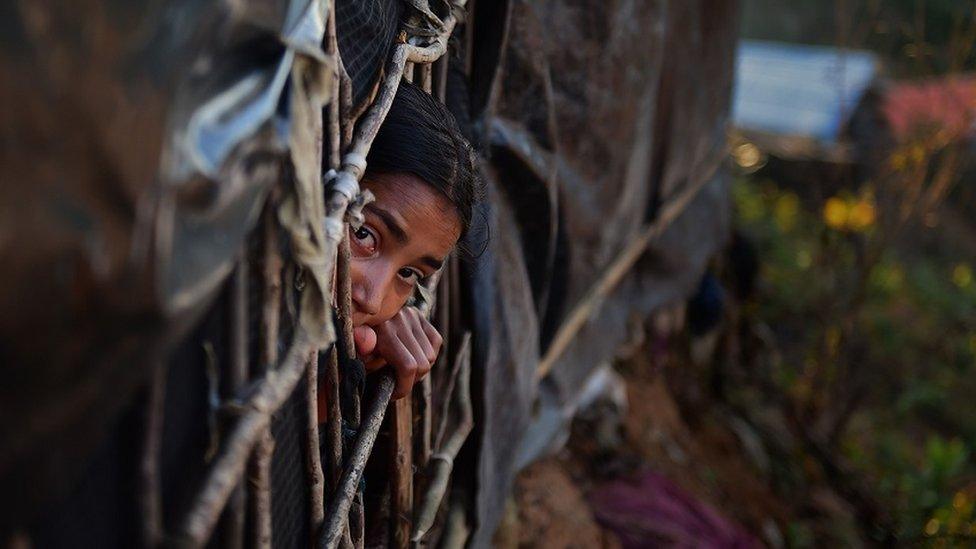
- Published22 November 2017
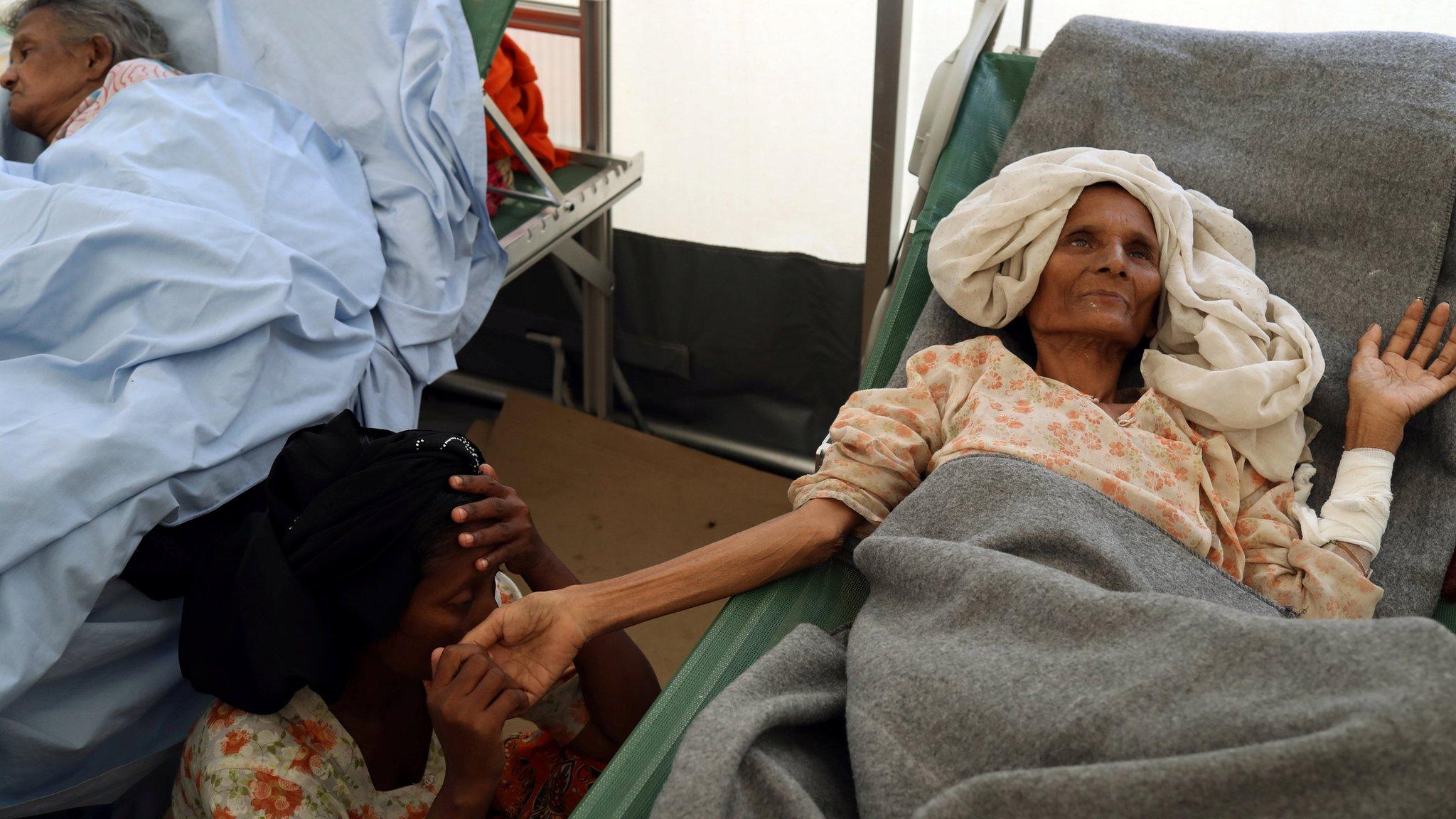
- Published7 September 2017
